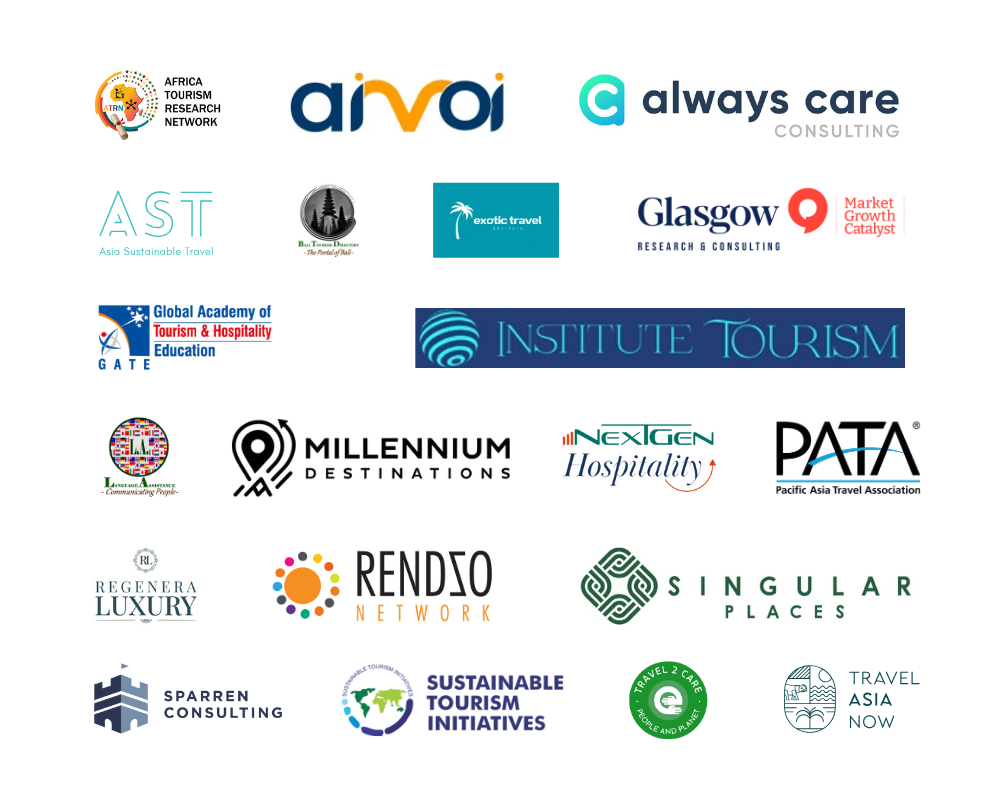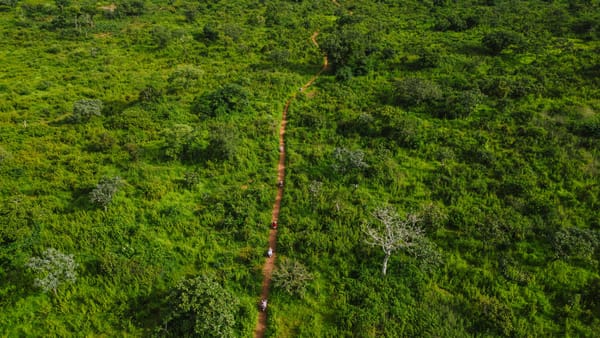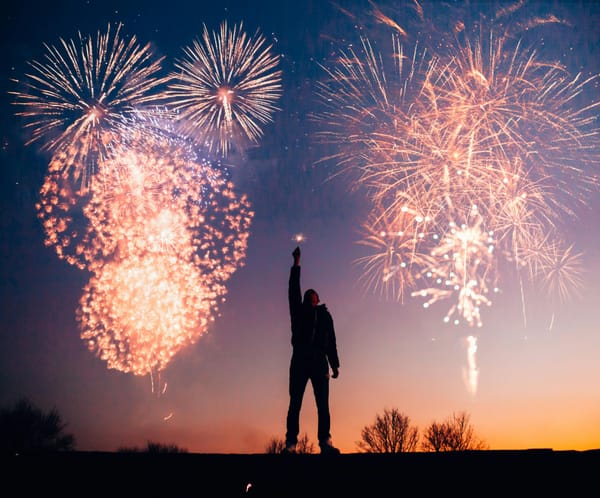China – Polluter and Clean Energy Producer No. 1


Dear reader,
as mentioned last week, your humble editor had the honour to be the only international keynote speaker at the Third Yongding River Green Development Forum and the Symposium on Ecological Protection and Green Development with the topic "Ecological Integration - Harmonious Coexistence”, organised by the People's Government of Mentougou District, Beijing, on August 15th, 2025.
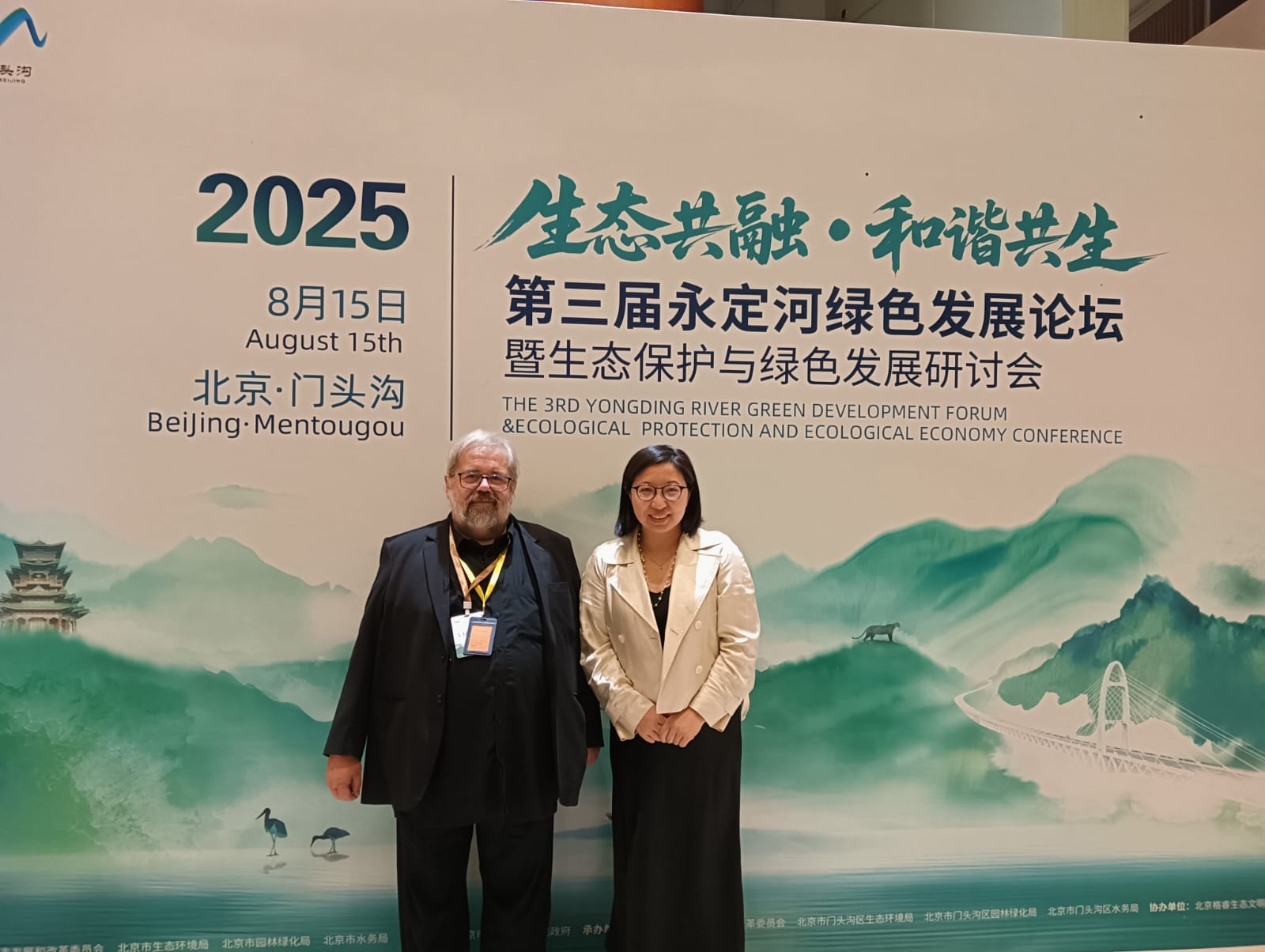
The event took place in a conference center and hotel, which stands in the middle of hills and forests, and for which the local government spared no expense for an impressive building.
All other speakers in the forum and the two subforums were Chinese, so it was only for your humble editor that two interpreters worked the whole day, and every one of the about 200 participants had been supplied with earphones for the translation.
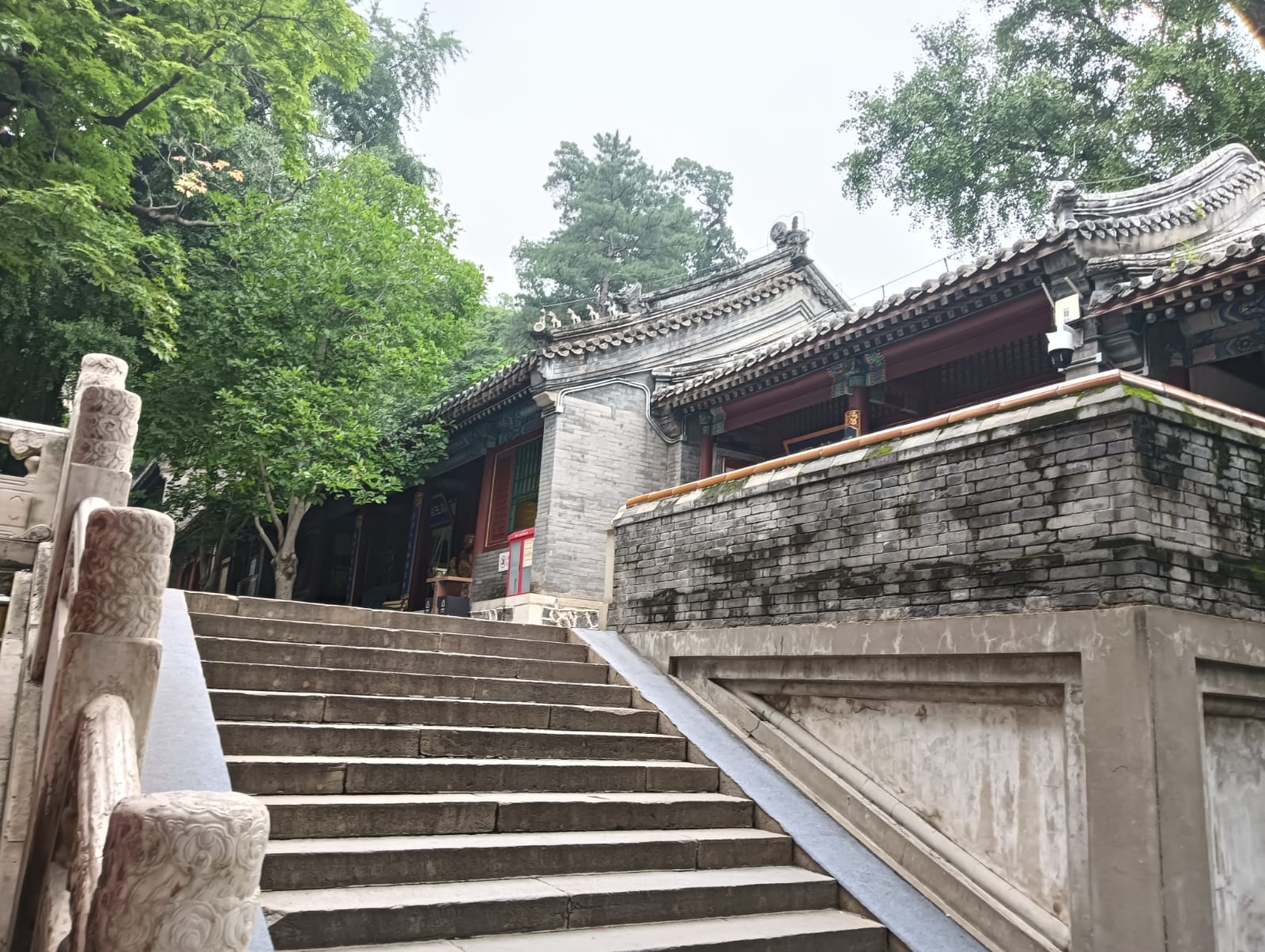
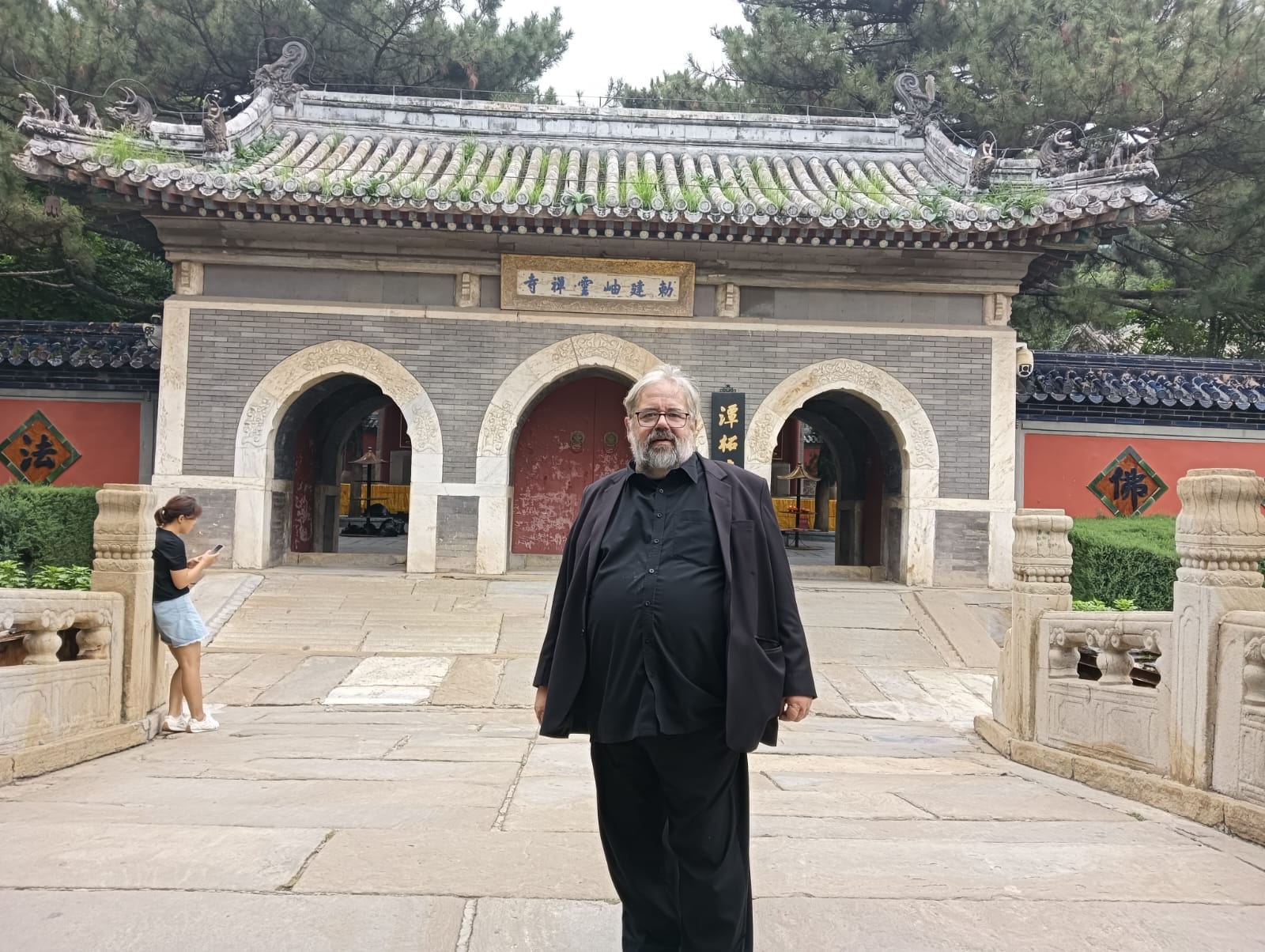
Tanzhe temple. Photos by Prof. Dr. Wolfgang Georg Arlt.
In 1978, when your humble editor visited Beijing for the first time, it was a poor, dark city made completely of endless areas of hutongs with one-storey courtyard buildings.
With economic growth, the buildings went further into the sky, which, however, became more and more polluted, reaching levels of 999 for PM2.5 for micro-matter, stopping there only because the measurement instrument supported only three digits. The five rivers of Beijing were rather sewers, stinking and full of rubbish.
Starting with the Olympic Summer Games 2008 and especially in the last years, the air has become fresh again thanks to the removal of factories and sulphur-laden coal for heating and the introduction of electric cars and scooters.
All rivers have been remodelled into leisure areas with pedestrian walkways, playgrounds, pavillons, fitness instruments, and much more.
China is the biggest polluter in the world, but at the same time, it is also the biggest producer of solar and wind energy.
China has set the year 2060 for a carbon-free economy, but took the bold step to declare the year 2030 as the peak year for carbon emissions, a date not so far in the future as to make sure that nobody will remember and no politicians making these promises still in power, in most cases not even alive anymore.
The conference celebrated 20 years of the “Two Mountains” concept of Chairman Xi Jinping, stating that nature both has to offer clean air and water (tourism) and gold and silver (economic development). How to balance these two approaches was the main question of the conference.
Your humble editor pointed out that this is to some extent the wrong question, as not balance and compromises are needed, but alignment. Only if all stakeholders gain objective benefits and subjective satisfaction, as the Meaningful Tourism paradigm postulates, will there be an understanding that clean nature and economic success are two sides of the same coin, not a contradiction. Fortunately, it can be reported that the comments for the keynote can be summed up in the remark “Your message came across loud and clear”.
Mentougou, strategically placed at the western edge of the city, not far from Haidian, the home of China’s most important research facilities and universities, is pushing for more visitors to its mountains and temples and will certainly succeed. “Be careful what you wish for” is a message also true for the Mentougou District.
After a few days back in Kathmandu, including a workshop for the next group of Meaningful Tourism Transformational Game Workshop trainers (see MTC news), your humble editor, together with several other trainers, will conduct an open Meaningful Tourism Transformational Game Workshop in Bangkok on Monday, August 25th. Hope to see you there!
As always, all best wishes from Prof. Dr. Wolfgang Georg Arlt and the whole Meaningful Tourism Weekly team in Kathmandu and in Manila!


The Lapsi Tree: A Community-driven Retreat in Nepal’s Hills

In the quiet hills of Nagarkot, The Lapsi Tree offers more than a place to stay—it’s a collaboration between nature and people. From protecting natural springs to empowering local women through upcycling programs, this retreat is deeply rooted in its surroundings.
Guests are invited to slow down and connect with the land and its people, whether through sunrise treks, cooking Nepali dishes, or evenings of music and storytelling. Every moment here reflects a commitment to preserving the environment and celebrating local traditions.

This story was originally published by Travel Asia Now.

Newly Certified Trainers for ‘Meaningful Tourism Transformational Game Workshop’
MTC is proud to welcome seven more Certified Trainers for the Meaningful Tourism Transformational Game Workshop.
We will present them in more detail to our readers in the coming weeks.
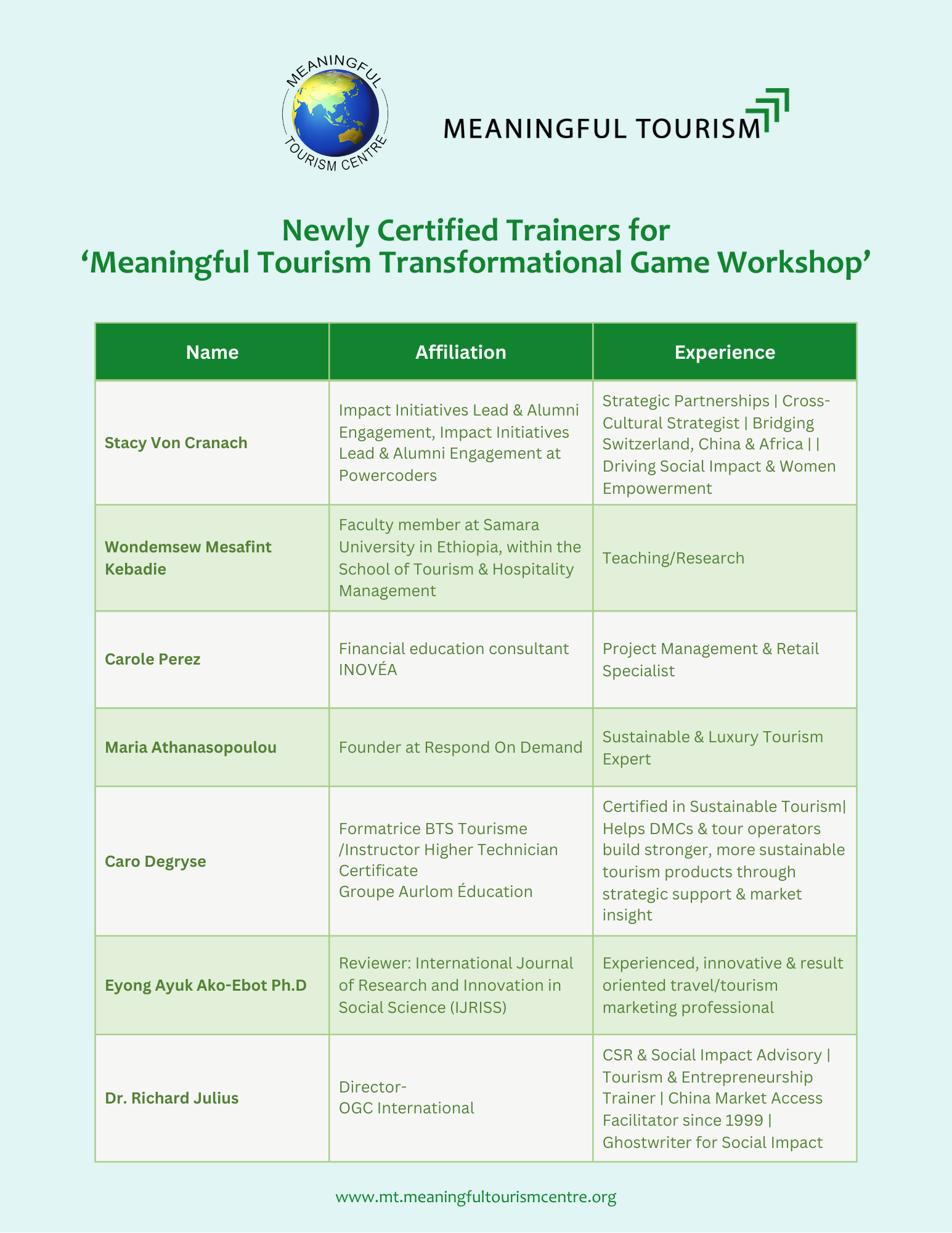
Welcoming a New Colleague at MTC
We are delighted to welcome Pragun Bilgaiyan as a new colleague at MTC for the coming four months.

Pragun is experienced in client relationship management, especially in hospitality and consulting. He is growth-driven, partnership-focused, and passionate about helping clients and partners to realize new business strategies.
We look forward to having Pragun helping to develop, especially the "Learning by Travelling" offer for university students during his time with MTC!
Meaningful Tourism Transformational Students Excursions: Advancing Student Learning and Community Development
The Meaningful Tourism Transformational Students Excursions is an initiative of the MTC Meaningful Tourism Centre that combines experiential learning with meaningful community engagement in Nepal and India.
The program allows hospitality and tourism students from universities around the world to develop practical skills, conduct applied research, and gain insights into sustainable tourism practices and the Meaningful Tourism tools, while simultaneously contributing to the social, cultural, and economic development of host communities.
The student groups are organised by their host university, with MTC providing the coordination with the Certified Meaningful Tourism trainers in both the sending and the receiving country, a local university for academic quality assurance, local sustainable tourism tour operators for the professional organisation, and the local communities and NGOs in Nepal or India.
The students participate in immersive field experiences, in most cases staying in local homestays, learning about community-based tourism. They support local crafts and cuisine, and participate in projects addressing a variety of topics from heritage preservation, women’s empowerment, social inclusion, and climate change adaptation, leveraging local resources like festivals, etc.
By linking tourism with gender equity, economic development, and environmental sustainability, students learn how tourism based on Meaningful Tourism principles can generate income, empower women and marginalized groups, and support community-led adaptation to climate change. These experiences provide practical skills in project management, cross-cultural communication, and sustainable tourism practices, while simultaneously helping communities strengthen local capacities and develop resilient tourism models.
In times when students, on the one hand, have easy access to facts and information via AI, but on the other hand have less and less social skills based on real-world encounters and communication, traditional lecture-based education is no longer the fitting form for the education of future tourism and hospitality leaders.
MTC-organised Meaningful Tourism Transformational Excursions extend learning beyond the classroom, enabling students to develop critical thinking, cross-cultural competence, and practical skills while producing tangible benefits for communities across multiple countries.
By connecting applied research, experiential learning, and community engagement, they provide a model for tourism education that simultaneously advances student learning, fosters sustainable development, promotes gender equity, and strengthens community resilience in Nepal and India.
More countries, based on the extensive network of the Meaningful Tourism community, will follow in 2026. Interested universities or other Higher Education Institutions can contact MTC for details. Programs can be adapted and customised according to the needs and the focus of the study program of the home university.
Field trips are typically organised for two weeks, with group sizes between 10 and 30 students plus host university lecturers or professors.

Rethinking Travel Seasons: Why “Best Time to Visit” Is Changing

The idea of a “best time to visit” a destination is being redefined as climate change, overtourism, and shifting travel patterns reshape the way we explore the world. From unpredictable weather disrupting traditional peak seasons to travelers seeking quieter, more sustainable experiences, the travel industry is adapting to a new reality.
This shift is encouraging destinations to promote off-peak travel, offering visitors a chance to experience places in a more authentic and less crowded way—while also easing the strain on local communities and ecosystems.
This story was originally published by BBC Travel.

Meet the Trainer for the Meaningful Tourism Transformative Game Workshop
Max Haberstroh, Trainer for Switzerland and Southwest Germany

Max Haberstroh brings more than 40 years of experience in international tourism management, development, and sustainable destination strategies. He has worked with leading organizations, including GIZ, CIM, Conservation International, and the German Foreign Office, contributing to projects across Europe, Asia, Africa, and the Americas.
In Germany, he held senior roles such as Tourism Director, Marketing Manager, and Director of Training at the German National Tourist Board. A seasoned consultant, writer, and lecturer, he specializes in destination branding, governance, intercultural communication, and sustainable tourism, with a strong focus on cross-industry cooperation and peace through tourism.
The Meaningful Tourism Weekly asked Max Haberstroh: What is the current situation of tourism in Switzerland and how can the Meaningful Tourism Paradigm help to support its development?

His answer:
Switzerland: Tourism Update and Possible Meaningful Tourism Paradigm Support
1. General Information
...Based on the trends and results from 2024, the market [in 2025] is stable and continues to grow strongly. Demand for long-haul and luxury travel remains robust, and established providers such as Kuoni are recording significant increases in sales. This is complemented by SBB’s strategic expansion in rail travel, which appeals particularly to environmentally conscious travelers and further increases flexibility for Swiss tourists.
Source (Excerpt): Swiss Tourism 2024: Trends and Outlook 2025 - KLEBER GROUP
2. Key Market Indicators
Several factors explain why Switzerland is spared mass tourism, the first of which is the franc.
The cost of living is a barrier to overtourism, as are the few low-cost air links and the absence of low-cost hotel complexes. – Swiss overtourism threatens industry’s health.
The industry is coping with an average room occupancy rate of 50%, a far cry from saturation, as the aim is to improve visitor numbers.
There are, however, some areas of tension. For example, the organisation promoting Switzerland as a tourist destination estimates that cases of overtourism can be observed in “only six or seven places” in the country, which change regularly.
“We keep a close watch and adapt our communication campaigns accordingly,” explains Nydegger [Martin Nydegger, Schweiz Tourismus/Switzerland Tourism].
Source (Excerpt): Switzerland Tourism Industry Outlook 2024 - 2028 (July 5, 2024)
3. Federal tourism strategy of Switzerland: Sustainable development and digital transformation
The Tourism Strategy of the Swiss Confederation ... focuses on improving business conditions, promoting entrepreneurship, leveraging digital opportunities, enhancing tourism offerings, and supporting sustainable development.
Guided by principles of prioritisation, implementation, target group focus, and subsidiarity, the strategy emphasises continuous improvement, stakeholder engagement, and a holistic approach to building a resilient and sustainable tourism industry in Switzerland. A new objective – backing sustainable development – has been added…, recognising the increasing importance of sustainable development to tourism...
4. The potential support of the Meaningful Tourism paradigm
Switzerland's strategy sets a new strong emphasis on a holistic approach to building a resilient and sustainable tourism industry, in an effort to back sustainable development. – Here, the Meaningful Tourism paradigm could play its part.
MTC Certified Trainers
Please find below the updated overview of all our Certified Trainers for the Meaningful Tourism Transformational Game Workshop and the updated World Map showing the countries directly and indirectly covered at the moment.
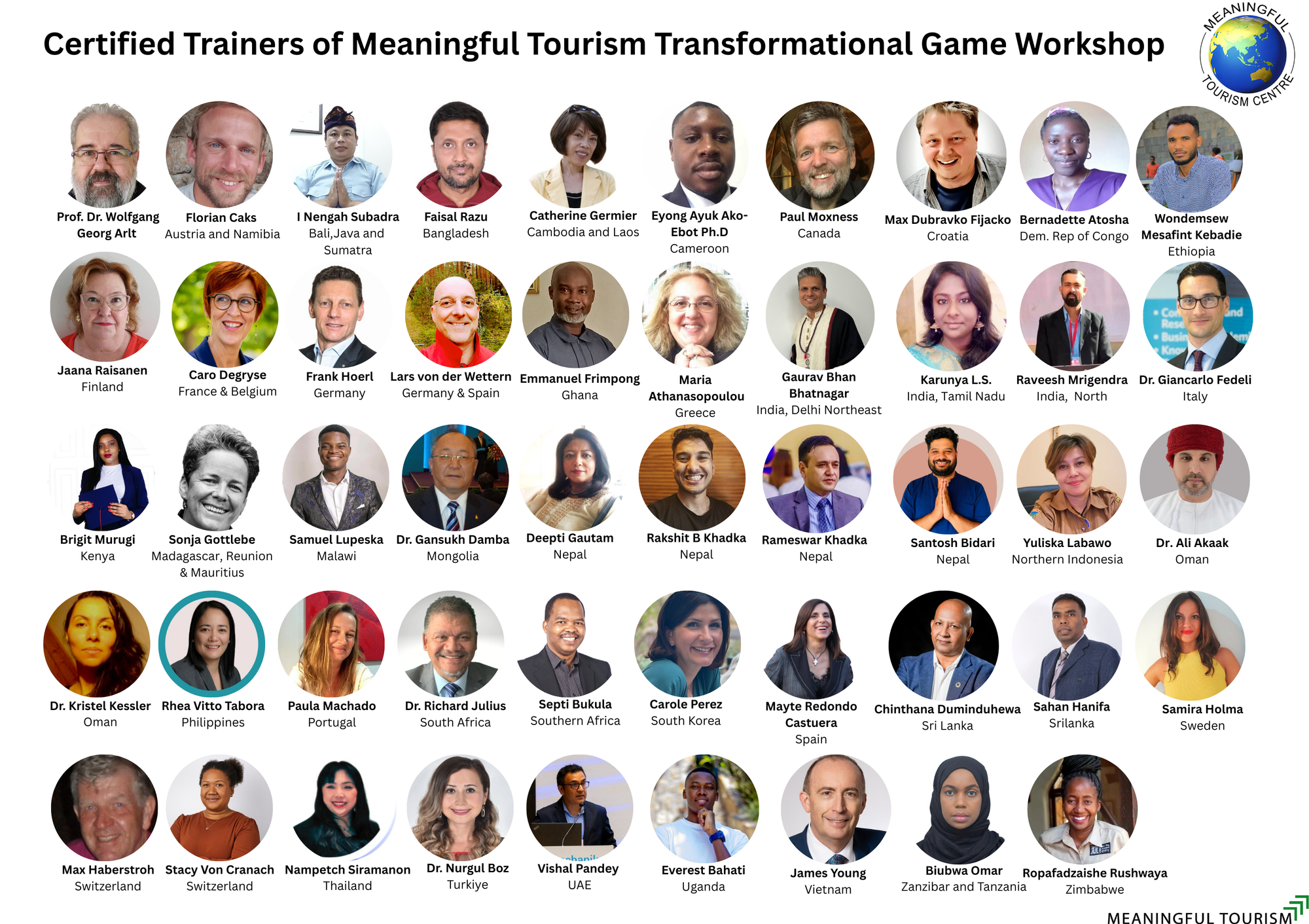
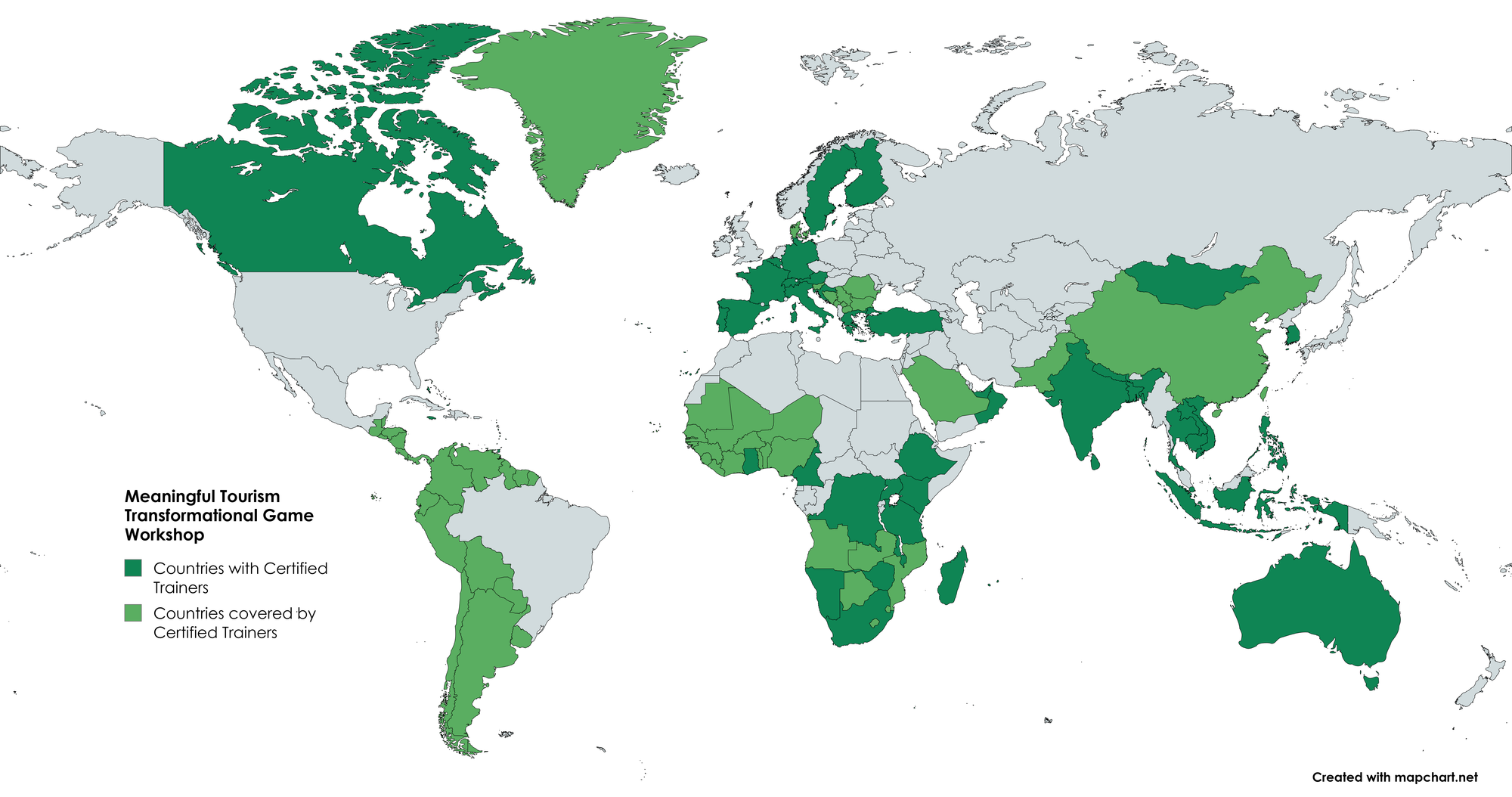
With almost 50 Certified Trainers, many countries and regions of the world are already covered. However, MTC continues to look for professionals with experience in training or lecturing and a passion for sustainable tourism.
If you are interested in becoming a Certified Trainer for the Meaningful Tourism Transformational Game Workshop for a country not marked in dark green on the map above, please contact us at office@meaningfultourismcentre.org.

Meaningful Tourism Transformational Game Workshop
August 25, 2025, Bangkok

The Pacific Asia Travel Association (PATA) adopted the Vision Statement A Meaningful Pacific-Asia Tourism Economy with a 100% in favour vote during the PAS in Istanbul in April 2025.
One day before the PTM PATA Travel Mart 2025, on August 25, 2025, the Meaningful Tourism Centre (MTC) will host a special Meaningful Tourism Transformational Game Workshop, conducted by the inventor of the Meaningful Tourism paradigm, and founder of MTC, Prof. Dr. Wolfgang Georg Arlt FRGS FRAS, together with the Meaningful Tourism trainers for Thailand.
If you are based in Thailand or you are a visitor to the PTM 2025, use this unique opportunity to learn how the Meaningful Tourism approach can enable your destination, company or organisation to survive and prosper in challenging times.
The transformational training workshop provides an interactive approach and introduces action-oriented tools. At the end of the day, you will understand why PATA chose a Meaningful Tourism Economy as the new vision and why you should follow the same path towards a sustainable and profitable future.
The workshop will run from 9:00 to 16:00 hours on August 25, 2025, the day before the PTM 2025 begins.
Venue: Victor Club @FYI Center, 2nd floor of FYI Center Building 1 (directly connected to MRT Queen Sirikit National Convention Center, venue of PTM).
Participation fee includes training workshop participation, a certificate of participation, a free VIP subscription for one year of the Meaningful Tourism Weekly, coffee/tea, cookies, and a vegetarian and non-vegetarian lunch buffet.
• Participation fee: USD 200 per person
VAT included if applicable.
• PATA members (including PATA chapter members) enjoy a 15% discount.
• Two or more seats booked at the same time enjoy an additional 10% discount.
• Payments are non-refundable. However, a change of participant is possible without additional fee until one day before the training workshop.
For further information and to make your booking, please contact office@meaningfultourismcentre.org.
On August 26, there will be a panel discussion on Meaningful Tourism with Prof. Arlt as one participant (only for participants of PTM).
Please visit the Meaningful Tourism Centre stand during the PTM 2025 at Booth D13.
Meaningful Tourism Transformational Game Workshop at World Travel Market, London
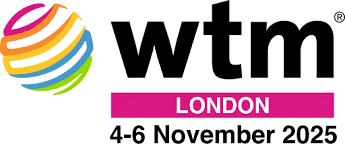
World Travel Market (WTM) in London is one of the must-attend annual events for key players in the tourism industry. The Meaningful Tourism Centre will offer a special Meaningful Tourism Transformational Game Workshop on the day before the start of WTM 2025, on November 3, 2025, from 9:00 to 16:00 hours. The workshop will be conducted by Prof. Dr. Wolfgang Georg Arlt FRGS FRAS, the founder of MTC.
There are only 30 seats available, so if you already know that you will attend WTM 2025, make sure you arrange your schedule to arrive on time for the training workshop on Monday, November 3, 2025.
Book your seat now and enjoy the Early Bird fee.
Venue: Central London, details to be advised. Transport from/to the hotel or Excel London can be arranged on request at a special rate.
• Early Bird participation fee for bookings paid before September 30, 2025: 175 Euros per person
• Full participation fee for bookings starting October 1, 2025: 200 Euros per person
VAT included if applicable.
Two or more seats booked at the same time enjoy an additional 10% discount.
Please note that payments are non-refundable. However, a change of participant is possible without additional fee until one day before the training workshop.
The participation fee includes training workshop participation, a certificate of participation, one year of free access to all content, including the Meaningful Tourism Weekly Library reserved for paid subscription holders, coffee/tea, cookies, and a vegetarian and non-vegetarian lunch buffet.
On the evening of November 3, 2025, there will also be a (self-paid) dinner followed by drinks with an opportunity to network with participants and to meet several of the Meaningful Tourism trainers from different countries.
For bookings, please contact office@meaningfultourismcentre.org.
Bookings will be closed once 30 reservations have been reached. Book today and enjoy the Early Bird fee.
About Meaningful Tourism Weekly
Meaningful Tourism Weekly, published every Thursday by Meaningful Tourism Centre (MTC) - London and Kathmandu, recently partnered with Travel Asia Now, led by Rhea Vitto Tabora. This collaboration enhances the newsletter’s professional production and distribution, bringing added value to our readers.
Each issue features the Meaningful Tourism Weekly Editorial, updates on MTC activities, a Best Practice Example, a portrait of an MTC-certified trainer, news about upcoming events, and occasionally additional op-ed pieces from guest authors. Carefully selected news items, including videos and podcasts, are also included, along with links to their original sources in the Meaningful Tourism News section.
Subscription to Meaningful Tourism Weekly is free, with the addition of a paid content section that includes a library of surveys, exclusive articles, conference presentations, and statistical data, offering subscribers invaluable resources.
Sponsorship opportunities are available for those interested in supporting this initiative.
For more information about MTC's trainings, market research, product adaptation, consulting services, conferences, strategy development, and marketing, visit our website or email us at info@meaningfultourismcentre.org.

